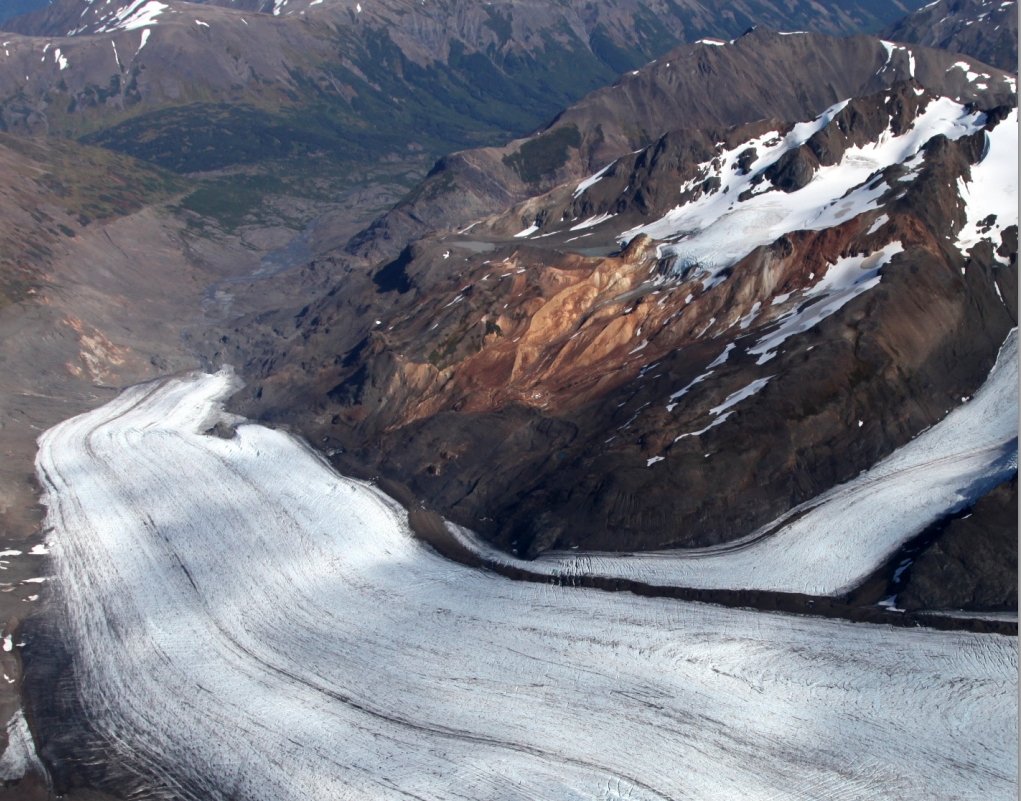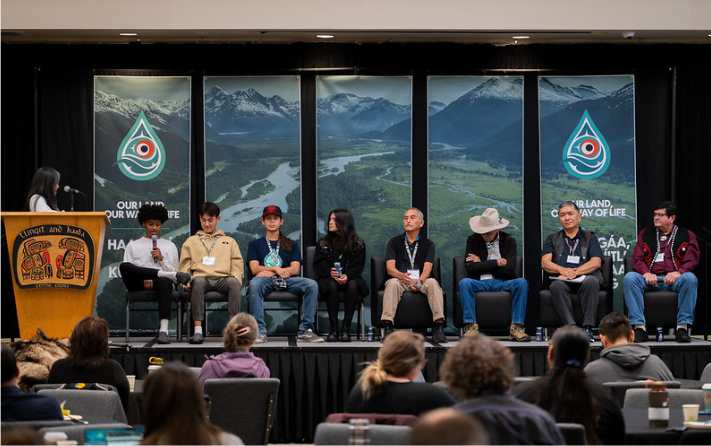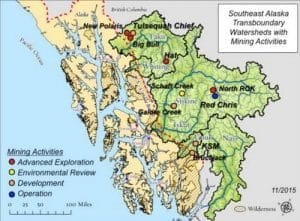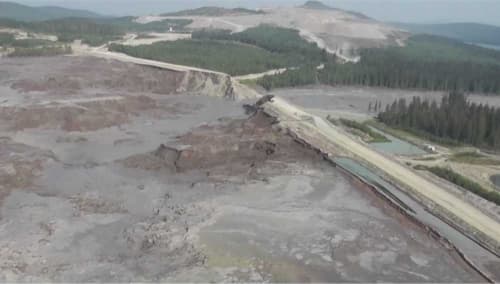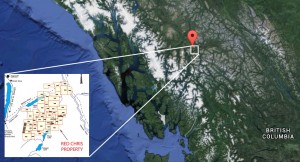
JUNEAU, ALASKA – Last week’s ill-conceived decision by the British Columbia government to issue a final operating permit for Red Chris mine disregards concerns from Alaskans whose clean water, fisheries, tourism, jobs, and traditional ways of life are threatened. Red Chris is owned by Imperial Metals, the same company responsible for the Mount Polley mine disaster last summer, one of Canada’s worst environmental catastrophes. Red Chris is one of several B.C. mines proposed for the transboundary region straddling Alaska that have raised the public’s ire.
B.C. issuing Red Chris its final permits on June 12 is the latest sign Canada is ignoring its obligations under the Boundary Waters Treaty, an international treaty that guards against water pollution by either the U.S. or Canada. Under the treaty, the United States, including Alaska, should play an equal role in evaluating the full range of potential impacts of B.C. mine projects, like Red Chris, in watersheds shared by both countries. B.C. should also agree to assume an equal share of the risks posed by transboundary mines through a legally-binding mechanism that ensures Alaska is appropriately compensated for impacts related to pollution reaching Alaskan waters.
Upstream from the Southeast Alaska communities of Wrangell and nearby Petersburg, in the headwaters of the transboundary Stikine River, Red Chris has the potential to unleash acid mine drainage, heavy metals and other pollutants that will drain into Southeast Alaska’s pristine waters. These waters produce more salmon than any other region of the world, as well as support multi-billion dollar fishing and tourism industries, and indigenous cultures of the region.
According to Salmon Beyond Borders and the United Tribal Transboundary Mining Work Group, it is reckless for B.C. to permit a new mine with the same type of tailings technology that failed so catastrophically at Mount Polley in August 2014. Red Chris’ permits make clear that B.C. is disregarding the recommendations from the independent panel review of the Mount Polley failure. One of the panel’s top recommendations was that new mines stop using tailings dams and move to more modern waste treatment methods like dry-stacking. Canada’s full-speed-ahead approach to transboundary mining is why Alaskans need prompt, swift and strong action from the U.S. State Department to ensure Canada honors its obligations under theBoundary Waters Treaty and doesn’t harm Alaska’s water, fisheries, culture and jobs.
“It’s astonishing to me how B.C. is dead set on getting these transboundary mines operating at all costs–even when their own experts say that current mining technology will fail. As I’ve said before, the B.C. government is ignoring the rights and concerns of those of us who live in Southeast Alaska. This is not okay and we will continue to fight,” says Rob Sanderson Jr., Co-chair of the United Tribal Transboundary Mining Work Group.
Alaskans, including Alaska’s congressional delegation, have been calling for U.S. Secretary of State John Kerry to activate theInternational Joint Commission (IJC) to review the multitude of mine developments in the transboundary region and how they could impact Alaska’s downstream waters. Today’s news that Red Chris is open for business should be a loud wake-up call for Sec. Kerry that the time to get the IJC involved is now.

